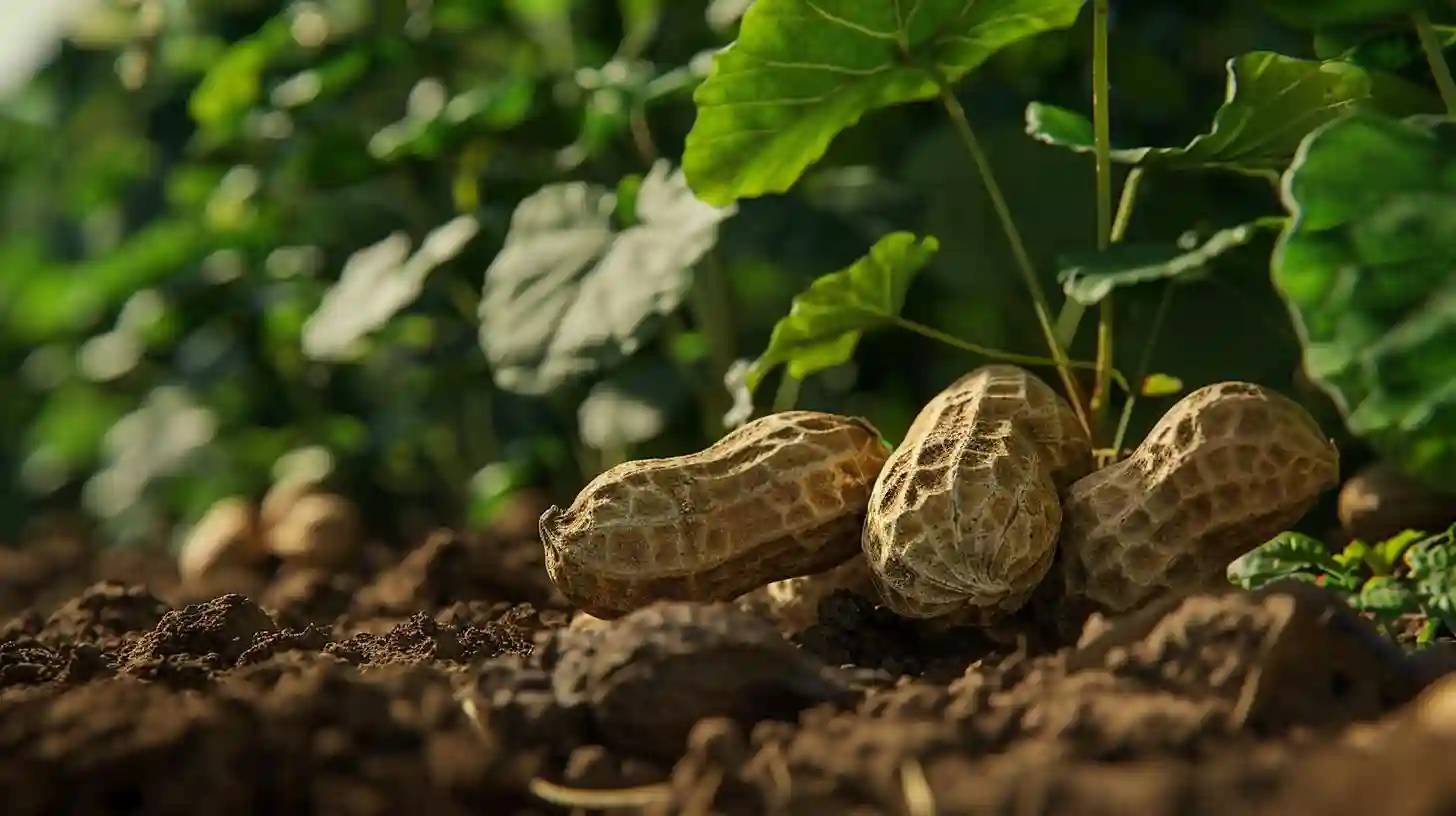
Peanuts are one of the most popular and versatile nuts in the world. They are widely consumed and used in a variety of forms, from peanut butter to roasted peanuts and even as a source of butter. Peanuts are not only delicious, but also rich in essential nutrients that provide health benefits.
The process of planting peanuts begins with choosing the right soil type and climate. Peanuts grow well in well-drained, sandy, loose soil. It is important to avoid heavy and clay soils as they can hinder plant growth. The ideal climate for growing peanuts is warm and sunny, with temperatures between 70°F and 90°F. Peanuts require a long growing season, about 4-5 months, so it is best to plant them in early summer to ensure a bountiful harvest.
Once the soil and climate conditions are suitable, the next step is to prepare the land for planting. This involves tilling the soil to a depth of about 4-6 inches and removing weeds and debris. Peanuts are usually planted in rows or mounds, with each seed placed about 1 to 2 inches deep and spaced 6 to 8 inches apart. It is important to water the seeds immediately after planting to ensure proper germination.
Once peanuts begin to grow, they require regular watering to keep the soil moist. It is also important to provide enough fertilizer to ensure healthy growth. Peanuts are a nitrogen-fixing plant, which means they can take nitrogen from the air and convert it into a form the plant can use. However, they still require additional sources of nitrogen, phosphorus and potassium to support their growth and development.
One of the key benefits of peanuts is its nutritional value. They are a rich source of protein, healthy fats, fiber, vitamins and minerals. Peanuts are especially rich in monounsaturated and polyunsaturated fats, which are known to lower cholesterol and reduce the risk of heart disease. They also contain a wide range of antioxidants, including resveratrol and phytosterols, which help protect against chronic diseases such as cancer and diabetes.
Apart from their nutritional value, peanuts are also an excellent source of energy. They are very high in calories, and even a small portion provides a significant boost of energy. This makes them an excellent snack for athletes and people leading an active lifestyle. Peanuts are also a good source of carbohydrates, which are essential to fuel the body and maintain optimal energy levels.
Another benefit of peanuts is their versatility. They can be eaten in a variety of ways, from raw or fried to salted or unsalted. Peanuts can also be ground into a smooth or coarse butter that can be used as a spread or ingredient in a variety of recipes. Peanut butter is another popular product that is used for cooking, baking and frying. Peanuts can also be added to salads, stir-fries, sauces and desserts, adding a crunchy texture and nutty flavor to dishes.
Apart from culinary uses, peanuts have a number of other uses. Peanut shells can be used as animal feed, mulch or fuel. Peanut skins can be used to make natural dyes or compost. Peanut butter is a common ingredient in cosmetics, soaps, and lubricants. Peanuts are also used in traditional medicine for their anti-inflammatory, antioxidant and antimicrobial properties.
Peanuts are a versatile and nutritious nut that offer a wide range of health benefits. Peanuts are a delicious addition to any diet thanks to their delicious taste and nutritional content. Whether eaten raw, roasted, or processed into other foods, peanuts are a delicious and convenient way to boost energy levels, support heart health, and improve overall well-being. So, next time you're craving a snack, consider grabbing a handful of peanuts for a filling and nutritious treat.